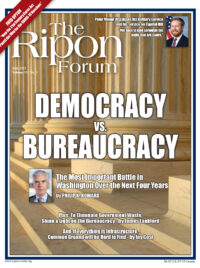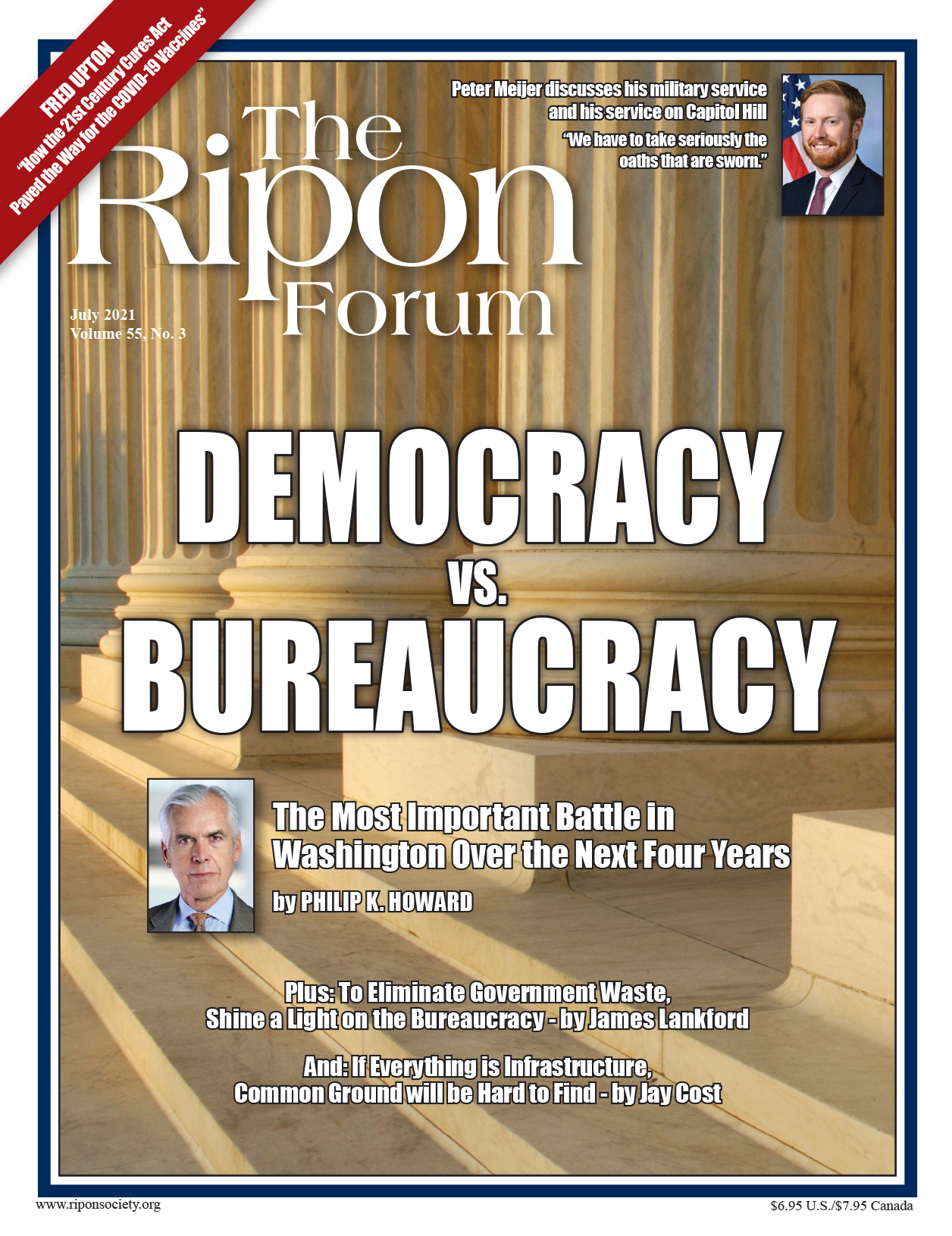When Donald Rumsfeld passed away at the age of 88 last month, most of the news coverage focused on his tenure as Defense Secretary in the last Bush Administration. What received less attention was the fact that Rumsfeld led a long and impressive career in both public and private life. He was a Congressman, Cabinet Secretary, U.S. Ambassador to NATO, and White House Chief of Staff. He was the CEO of several companies, as well. In short, he was a man who knew about organizations, knew about leadership, and had well-formed opinions about both.
Rumsfeld shared some of those opinions in a speech before The Ripon Society on June 1, 2011, nearly 10 years to the day before his death. In his remarks, he called for a sweeping reorganization of the federal bureaucracy, saying that “our government is still basically functioning in the structures that date back to the Truman Administration.” Rumsfeld further noted that the last time such a reorganization had occurred was in the years following World War II, when a bipartisan commission headed by former President Herbert Hoover examined the issue of government reform in greater depth.
The commission issued hundreds of recommendations, over 60 percent of which were implemented. The recommendations included the elimination of outdated programs, the consolidation of duplicative agencies, and the creation of a new cabinet department focused on public health. These recommendations created the basic bureaucratic framework which shapes the direction and performance of the federal government today. Given all the changes that had occurred in the years since the recommendations were implemented, Rumsfeld observed, it was time to examine the issue of government reform in greater depth again.
In this latest edition of The Ripon Forum, we do just that. Leading our coverage is an essay by a man who, if the modern day-equivalent of the Hoover Commission were to be formed, would be a good candidate to either lead the panel or be the first witness to testify about why the federal bureaucracy needs to be reorganized today. His name is Philip K. Howard, and he is not only one of the leading experts on government reform, but one of the most eloquent writers and speakers on a subject that receives far less attention than it should. He shares his expertise and eloquence in this edition, writing that the current dysfunction plaguing our government has less to do with the people in charge than the rules that govern – and, more often than not, restrict – their actions every day.
“Democracy isn’t working because bureaucracy is in charge, not the leaders elected by voters,” Howard writes. “Government is like a runaway train, beyond democratic control. The steady accretion of regulatory dictates — at this point, 150 million words of federal law and regulation — has preempted human leadership. This is not mainly a problem of the scope of government — say, providing health insurance — but of regulatory rigidity. While there’s plenty of government overreach to complain about, the reason nothing much works sensibly is a different flaw — no one has the authority to use common sense at the point of implementation.”
Howard goes on to propose a series of recommendations to “reboot the bureaucracy,” as he puts it, from simplifying federal codes to reforming the civil service to establishing boundaries on legal claims. These recommendations are perhaps some of the most important we have featured in our pages in recent years, and are one of the reasons why we view the focus of Howard’s essay – “Democracy vs. Bureaucracy” – as being “the most important battle in Washington over the next four years.”
Of course, one important part of this battle is shining a light on the federal bureaucracy itself. To examine that issue in greater depth, this edition also features an essay by Oklahoma Senator James Lankford about the effort he is leading to not only expose “federal fumbles,” as he calls them, but create an inventory of federal programs so the American people can find out for themselves how their tax dollars are being spent.
With Congress and the President trying to reach agreement on a plan to modernize America’s infrastructure, Jay Cost of the American Enterprise Institute looks at the state of negotiations and why the push by progressives to “redefine ‘infrastructure’ as a catchall term for their entire agenda” will make it more difficult for Republicans and Democrats to find common ground.
In other topics in this edition, veteran Congressman Fred Upton of Michigan looks at the legislation he authored in 2016, the 21st Century Cures Act, and how the landmark measure helped pave the way for the COVID-19 vaccines that are saving countless lives today.
And in our latest Ripon Profile, another Michigan lawmaker, first-term Congressman Peter Meijer, discusses his service in the military, his service in the House, and why the oaths he took for both are so sacred.
As always, we hope you enjoy these and other pieces featured in this latest edition of The Ripon Forum, and welcome any thoughts or comments you may have.
Lou Zickar
Editor of The Ripon Forum
louzickar@clu.ccw.mybluehost.me





